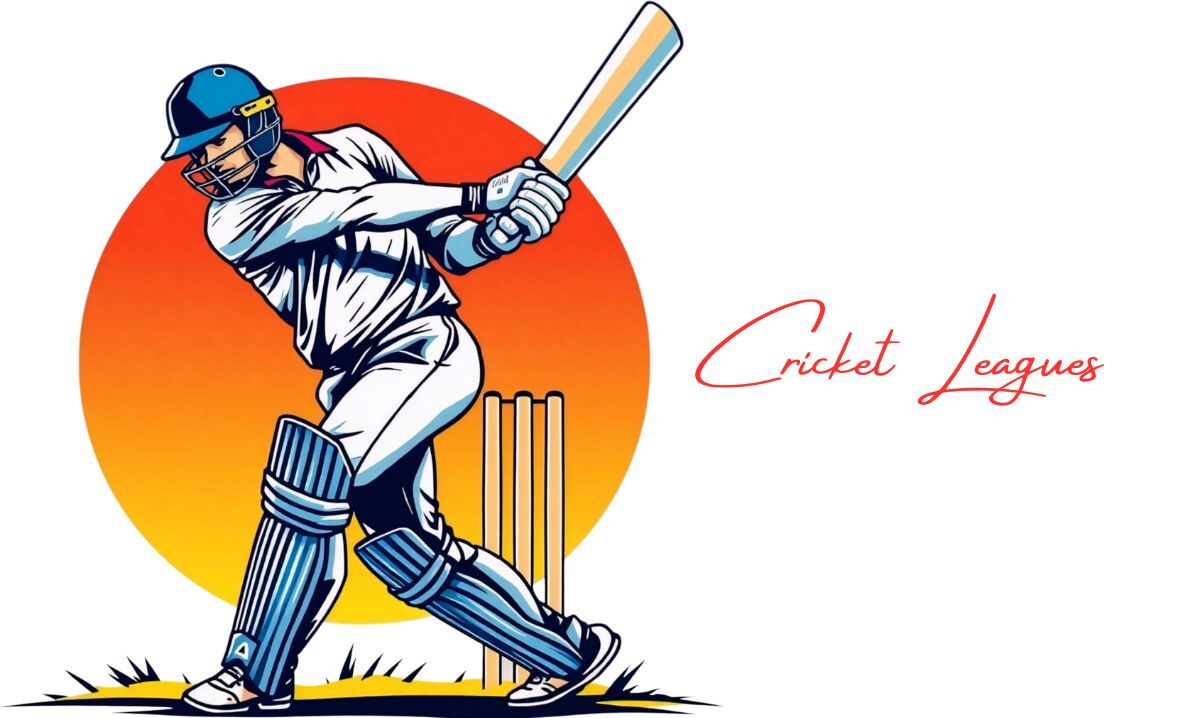Cricket is not only a game; it is a culture in most parts of the world, especially in India, Australia, the UK, and the Caribbean region. With the digital era redefining the consumption, management, and monetization of sports, a controversial question is arising: Can a cricket tournament be created and executed entirely on blockchain technology?
The prospect of a fully blockchain-driven, cryptocurrency-based cricket league has never seemed more real with the emergence of decentralized finance, fan tokens, and smart contracts.
The merger between sports and Web3 has already made headlines with crypto sponsorships, NFT collectibles, and platforms featuring fan tokens. However, the concept of incorporating blockchain not only in finance but also to operate a tournament, including features such as team ownership, player drafts, scoring, rewards, and governance, may steer things in a new direction.
Core processes in this kind of a model would be transparent, trustless and can be accessed globally. In the same manner that investors monitor such tokens as btcusdt to gain real-time views into the trading process, fans and stakeholders would be able to monitor every step of the operation of the league on-chain.
The Benefits of Blockchain in Cricket Games
Blockchain is a tool that can play a vital role in enhancing the organization of cricket tournaments in various ways. With a decentralized system, transparency would be introduced in the results, umpiring judgments, and transactions. Smart contracts have the potential to do even this in countries where cricket management has not been entirely free of allegations of favoritism or corruption.
Consider how voting could be conducted through a DAO, allowing fans holding the tokens to influence the selection of players for the final team. It is possible to crowdfund prize money in cryptocurrency and store it in multi-signature wallets, which can then be dispersed instantly through smart contracts based on predetermined performance criteria. It would be able to play out contracts between players, as well as appearance fees and bonuses, without intermediaries and delays.
The NFTs could be used in ticketing systems as digital tickets for cricket teams, which could eliminate scalping and allow for a secondary market where ownership can be verified through the blockchain. The production of goods can be associated with token rewards for its fans, offering a bonus level of interaction. All stakeholders, including organizers and sponsors, fans and players could be operating within one open digital ecosystem.
Fan Ownership and DAOs
The next, no less interesting part of a tournament that may be supported by blockchain is the idea of community ownership. DAs, or decentralized autonomous organizations, have already begun to finance artists, as well as musical and sports projects. Taking the example of cricket, a DAO may function as a tournament administrator, deciding on the venue, making changes to the rules, and even forming sponsorship partnerships through community votes.
This would be democratic and decentralize the power to boards or companies that make profits. Fans had the opportunity to buy into the DAO and received voting rights, as well as the possibility of receiving frames. DAO can even own teams, and fans vote on the coaching personnel, team color scheme, and strategy. This type of structure would not only foster loyalty but also introduce a new economic model for engaging fans.
Fair Play, Fast Payments and Smart Contracts
Smart contracts are blocks of code that can be used in instances when certain requirements are fulfilled. These contracts could be used to automatically score matches and rules, and provide rewards within a blockchain-ledger cricket league. As an illustration, when a batsman hits one hundred, a smart contract would authorize the issuance of a bonus in stablecoins or native tokens to his/her wallet automatically.
Likewise, the process of verifying the match could transfer the winnings of winning teams almost immediately into their share of the prize pool, eliminating the conventional delays and arguments.
Game referee and umpire decisions can be recorded on-chain and form an immutable audit trail, raising accountability. Such decisions might be justified without human input when combined with the assistance of AI or IoT technologies, such as ball-tracking systems. It would completely decrease the conflicts and enhance the belief in the result of every game.
Still, There Are Barriers to Be Conquered
Besides all the potential, it is obvious that there are certain obstacles to the continuation of a completely blockchain-based cricket tournament. The most important is regulatory compliance. Sports leagues engage in player contract licensing, rights to broadcast games, as well as bans on gambling activities- all done under the close supervision of national laws.
To introduce crypto and DAO-based models, a decision would need to be made by various governing bodies, and most of them are cautious towards digital currencies and decentralized frameworks.
Another problem is Scalability. Transaction speed and fees remain a significant challenge for public blockchains, particularly during periods of high traffic. In a live sports league, settlement and record-keeping would need to be near real-time, and it is unclear whether this is possible on several existing platforms without the use of Layer 2 or custom chains.
Additionally, there is the issue of adoption. The transition to a blockchain will be intimidating to players, fans and administrators who have been accustomed to conventional frameworks. The interfaces have to be made easier and fiat-to-crypto on-ramps should be smooth. A smooth transition will entail education and building of trust.
The First Steps Have Taken Place
None of the cricket businesses have yet moved entirely on-chain, but the first signs of transformation are already in evidence. Several cricket boards and franchises have released NFTs to their fans. A new form of fantasy league on a token basis is beginning, where data from actual matches is linked with a blockchain with their performance. Crypto platforms such as CoinDCX and Binance are already sponsoring the IPL, indicating that Cricket and crypto are already engaging with each other.
Experimentation is the logical forethought. An independent league T20 could be used to test the idea of the blockchain and it may be put on a hybrid model with some operations still centralized and some others run on the blockchain. Such success might translate into more accreditation into bigger franchises and even international models.
A blockchain-based cricket event is not something out of science fiction. It marks a logical next step in the global development of cricket’s popularity and the disruptive potential of blockchain. And with sensible play ensured by smart contracts, ownership facilitated by DAOs, and community engagement through tokens that allow fans to become real-time operators, the combination of the two worlds can result in reinventing the way the game is played, observed, and sponsored.



